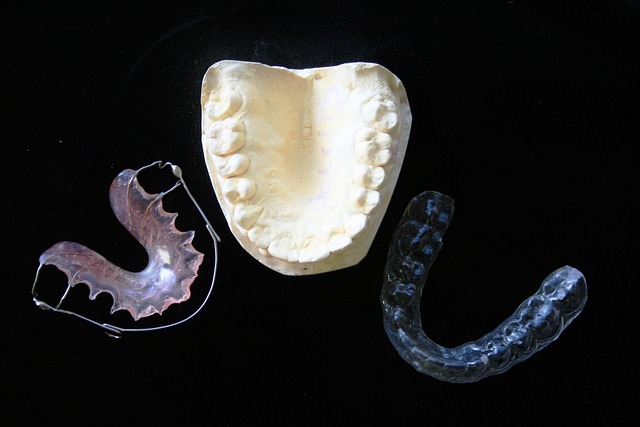Dr Casares McAllen: Transform Your Smile, Achieve Brighter Teeth

Dr Casares McAllen offers advanced teeth whitening services using safe, FDA-approved methods like la…….
In the ever-evolving landscape of healthcare, Dr Casares McAllen emerges as a transformative concept, promising enhanced patient care and streamlined medical services. This comprehensive approach to healthcare management has garnered significant attention globally, driving innovations in how medical resources are allocated and utilized. This article delves into the intricacies of Dr Casares McAllen, exploring its definition, global impact, economic implications, technological underpinnings, regulatory frameworks, and the challenges it aims to address. By examining these aspects, we gain valuable insights into a system that has the potential to revolutionize healthcare delivery worldwide.
Dr Casares McAllen is not merely a buzzword but a holistic framework designed to optimize healthcare systems. It encompasses a suite of strategies and technologies aimed at improving patient outcomes, reducing costs, and enhancing the overall efficiency of healthcare services. At its core, this concept emphasizes data-driven decision-making, leveraging advanced analytics, and implementing innovative care models.
Historically, healthcare delivery has often been fragmented, with disparate systems struggling to share information and coordinate care effectively. Dr Casares McAllen seeks to address these challenges by fostering collaboration between various stakeholders: healthcare providers, insurance companies, government agencies, and patients. Through this unified approach, the system aims to create a seamless, patient-centric healthcare experience.
Key Components:
Data Integration: Centralizing and integrating diverse healthcare data sources, including electronic health records (EHRs), claims data, and patient demographics, is a cornerstone of Dr Casares McAllen. This unified data repository enables comprehensive patient profiling and informed decision-making.
Advanced Analytics: Utilizing sophisticated analytics tools, such as machine learning and artificial intelligence, the system analyzes patient data to identify trends, predict outcomes, and optimize resource allocation. These insights empower healthcare providers to offer personalized care plans.
Care Coordination: Breaking down silos between different healthcare sectors, Dr Casares McAllen facilitates better coordination among primary care physicians, specialists, hospitals, and community health services. This coordinated approach ensures continuity of care and improves patient satisfaction.
Dr Casares McAllen has made significant inroads globally, with countries adopting its principles to varying degrees. The concept’s appeal lies in its adaptability to diverse healthcare systems while offering substantial improvements in efficiency and patient outcomes. Here’s a glimpse into its international influence:
North America: Leading the way in healthcare technology adoption, the United States and Canada have seen early success stories with Dr Casares McAllen principles. Initiatives like the Patient-Centered Medical Home (PCMH) model, which emphasizes team-based care and patient engagement, align closely with this framework.
Europe: Countries like the UK, Germany, and Sweden have implemented data-driven healthcare systems, leveraging digital technologies to improve patient access and outcomes. The European Union’s focus on interoperable health data further supports the Dr Casares McAllen vision.
Asia Pacific: With a rapidly growing aging population, countries in this region are embracing technology to enhance long-term care. Japan, for instance, has pioneered telemedicine and remote monitoring, integrating these services into its healthcare system to improve access and reduce costs.
Emerging Markets: Dr Casares McAllen holds immense potential in emerging economies, where healthcare infrastructure is often strained. Countries like Brazil and India are exploring digital health solutions to improve service delivery and address population health challenges.
The economic implications of Dr Casares McAllen are profound, as the system aims to optimize resource allocation while reducing costs. This section explores the market dynamics and investment patterns associated with this healthcare revolution:
| Economic Aspect | Impact |
|---|---|
| Cost Savings: By streamlining processes, reducing administrative burdens, and improving medication adherence, Dr Casares McAllen can lead to substantial cost savings for both patients and healthcare providers. | – Lower operational expenses for hospitals and clinics. – Reduced out-of-pocket expenses for patients, encouraging proactive health management. |
| Market Growth: The technology-driven nature of this concept attracts significant investments in healthcare IT, analytics, and telemedicine solutions. This stimulates economic growth and job creation in these sectors. | – Expansion of digital health startups and tech companies. – Increased demand for skilled professionals in data science, software development, and healthcare management. |
| Healthcare Accessibility: Improved care coordination and remote access to services can enhance healthcare accessibility, especially in underserved regions. | – Reduced healthcare disparities by extending reach to rural and remote areas. – Increased patient satisfaction due to more convenient and efficient care. |
Technology plays a pivotal role in Dr Casares McAllen’s success, driving its capabilities and transforming traditional healthcare practices. Let’s explore some key technological advancements:
Electronic Health Records (EHRs): Digital transformation of patient records allows for seamless data sharing among providers, improving care continuity and enabling data analytics.
Telemedicine: Remote patient monitoring and virtual consultations revolutionize access to healthcare, particularly in rural areas, by reducing the need for physical visits.
Artificial Intelligence (AI) and Machine Learning: These technologies analyze complex medical data, predict disease outbreaks, and support clinical decision-making, improving diagnostic accuracy.
Blockchain for Healthcare Data: Decentralized and secure storage of healthcare data ensures patient privacy and enables efficient information sharing between various healthcare entities.
The successful implementation of Dr Casares McAllen relies heavily on supportive policies and regulations that ensure data privacy, security, and ethical practices. Governments worldwide are responding with frameworks tailored to this evolving landscape:
Data Privacy Laws: Countries like the US (HIPAA) and Europe (GDPR) have stringent data protection regulations, ensuring patient consent, data encryption, and secure storage of sensitive health information.
Interoperability Standards: Efforts such as HL7 FHIR (Fast Healthcare Interoperability Resources) facilitate seamless data exchange between different healthcare systems, aligning with Dr Casares McAllen’s data integration goals.
Telemedicine Guidelines: Regulatory bodies are establishing guidelines for remote patient monitoring, ensuring quality care delivery and patient safety in virtual settings.
Healthcare IT Incentives: Governments offer incentives to healthcare providers and organizations that adopt certified electronic health record systems, encouraging the digital transformation essential for Dr Casares McAllen.
Despite its potential, Dr Casares McAllen faces several challenges and criticisms, many of which can be addressed through strategic planning and collaboration:
Data Security Concerns: As healthcare data becomes more digitized, protecting it from cyberattacks and unauthorized access remains a top priority. Robust cybersecurity measures are essential to regaining patient trust.
Interoperability Gaps: While interoperability standards exist, implementing them across diverse healthcare systems can be complex. Standardization efforts must continue to ensure seamless data flow.
Digital Divide: Rural and underserved communities may lack access to the necessary technology and internet connectivity, hindering their ability to benefit from telemedicine and digital health solutions. Bridging this divide is crucial for equitable healthcare delivery.
Resistance to Change: Healthcare professionals and organizations might resist adopting new technologies and processes due to concerns about job security or unfamiliarity with change. Comprehensive training and education can help address these fears.
Dr Casares McAllen has already shown remarkable results in various real-world applications, offering valuable insights into its effective implementation:
Case Study 1: Rural Telemedicine Initiative (USA)
In a rural county in the American Midwest, a collaboration between local healthcare providers and technology companies introduced telemedicine services. This initiative improved access to specialists for patients with chronic conditions, reducing travel time and costs. The success lay in partnering with existing community health centers, ensuring acceptance and seamless integration into their operations.
Case Study 2: Data-Driven Diabetes Management (UK)
The NHS in a UK city implemented a data analytics-driven program for type 2 diabetes management. By analyzing patient data, they identified high-risk individuals and tailored interventions accordingly. This proactive approach led to improved glycemic control and reduced complications, demonstrating the power of data integration in chronic disease management.
Case Study 3: Integrated Care Model (Germany)
A German healthcare provider successfully implemented an integrated care model, bringing together primary care physicians, specialists, and social services. This collaborative effort improved patient outcomes for people with multiple chronic conditions, proving that better coordination can enhance overall healthcare quality.
As Dr Casares McAllen continues to evolve, several growth areas and emerging trends shape its future:
Artificial Intelligence (AI) Integration: Advanced AI algorithms will play a more prominent role in predictive analytics, personalized medicine, and automated administrative tasks, further optimizing healthcare delivery.
Digital Health Startups: The ecosystem of digital health startups is expected to expand, offering innovative solutions for specific healthcare challenges, from mental health apps to remote patient monitoring devices.
Global Data Sharing: Efforts to establish global data sharing standards will facilitate international collaboration, enabling cross-border healthcare and improving preparedness for public health crises.
Personalized Medicine: With advancements in genomics and precision medicine, Dr Casares McAllen can cater to more individualized treatment plans, enhancing patient outcomes.
Dr Casares McAllen represents a significant leap forward in healthcare management, promising improved patient care, reduced costs, and enhanced efficiency. Through data integration, advanced analytics, and coordinated care, this concept has the potential to revolutionize how we access and deliver healthcare services. As global adoption increases, ongoing challenges must be addressed to ensure equitable access and optimal outcomes.
The future of healthcare is intertwined with technology and data-driven decision-making, and Dr Casares McAllen stands as a guiding beacon in this digital age. By learning from successful implementations and adapting to emerging trends, we can unlock the full potential of this transformative framework.
Q: How does Dr Casares McAllen improve patient outcomes?
A: By leveraging data analytics and coordinated care, this system enables early disease detection, personalized treatment plans, and improved medication adherence, ultimately leading to better health outcomes.
Q: What role does technology play in this healthcare model?
A: Technology is the backbone of Dr Casares McAllen, facilitating data integration, enabling telemedicine, and supporting advanced analytics. It enhances efficiency and improves access to healthcare services.
Q: Can Dr Casares McAllen address healthcare disparities?
A: Absolutely. By expanding access through telemedicine and encouraging community health initiatives, this approach can help bridge healthcare gaps, ensuring better care for underserved populations.
Q: How does data privacy fit into the equation?
A: Data privacy is a top priority, with strict regulations in place to protect patient information. Dr Casares McAllen emphasizes secure data storage, encryption, and patient consent to maintain trust and confidentiality.
Q: What are the key benefits for healthcare providers?
A: Healthcare providers can benefit from improved operational efficiency, reduced administrative burdens, better clinical decision-making, and enhanced patient satisfaction due to coordinated care.

Dr Casares McAllen offers advanced teeth whitening services using safe, FDA-approved methods like la…….

Dr. Cazares in McAllen promotes preventive dentistry through regular checkups, education on brushing…….

In the realm of healthcare, personalized care is not just a trend but a necessity. Patients deserve…….

Children’s dentistry plays a foundational role in shaping healthy oral habits from the earliest ages…….

Dr Casares McAllen offers personalized cosmetic dentistry at 1632 N. 10th Street, MCallen, TX 78501……..

In the ever-evolving landscape of healthcare, dentistry stands as a cornerstone of oral health and o…….

In today’s fast-paced world, efficient appointment scheduling is a cornerstone of successful practic…….